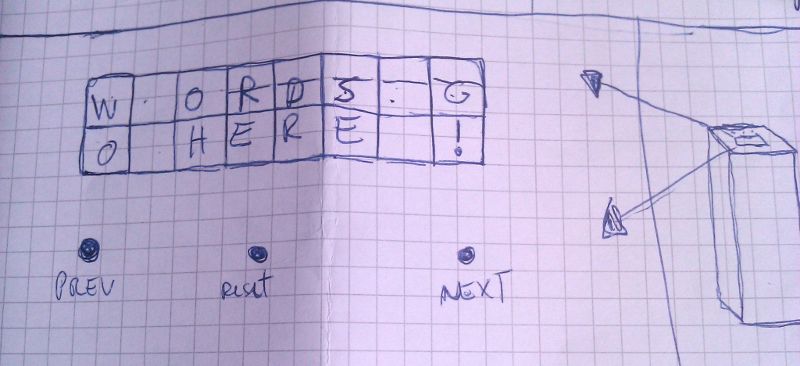User:Laurier Rochon/notes/projectIII draft: Difference between revisions
(Created page with "== Just an idea... == '''Have you ever read Ulysses from start to end? Didn't think so.''' I sure haven't. But I would love to. At this point, I think I'll quote Lieven to mi...") |
No edit summary |
||
| Line 1: | Line 1: | ||
<div style='text-decoration: line-through;'> | |||
== Just an idea... == | == Just an idea... == | ||
'''Have you ever read Ulysses from start to end? Didn't think so.''' | '''Have you ever read Ulysses from start to end? Didn't think so.''' | ||
I sure haven't. But I would love to. At this point, I think I'll quote Lieven to mirror my thoughts on this plan : "I started, read about half, and then pppppfffftttttmmmmm..." | I sure haven't. But I would love to. At this point, I think I'll quote Lieven to mirror my thoughts on this plan : "I started, read about half, and then pppppfffftttttmmmmm..." | ||
| Line 21: | Line 21: | ||
What I propose is the following : by using natural language processing tools (NLTK), I can condense every single page of text to just a few words. By selecting recurring/important nous and verbs, one can get the gist of the page by carefully reading these words only. Then, I would present the book on a 16x2 LCD screen with 3 buttons - page forward, page backwards and reset (go to beginning of the book). This way, one could presumably read Ulysses in approximately 20-30 minutes and then move on with their lives not feeling awkward from having not read one of the most classic works of the 20th century. Welcome to the future of e-books. Voilà! | What I propose is the following : by using natural language processing tools (NLTK), I can condense every single page of text to just a few words. By selecting recurring/important nous and verbs, one can get the gist of the page by carefully reading these words only. Then, I would present the book on a 16x2 LCD screen with 3 buttons - page forward, page backwards and reset (go to beginning of the book). This way, one could presumably read Ulysses in approximately 20-30 minutes and then move on with their lives not feeling awkward from having not read one of the most classic works of the 20th century. Welcome to the future of e-books. Voilà! | ||
'''To show you that I'm serious''' | '''To show you that I'm serious''' | ||
| Line 38: | Line 37: | ||
Only it would have the awesomely compressed text of Ulysses on it. | Only it would have the awesomely compressed text of Ulysses on it. | ||
</div> | |||
Revision as of 19:55, 10 June 2011
Just an idea...
Have you ever read Ulysses from start to end? Didn't think so.
I sure haven't. But I would love to. At this point, I think I'll quote Lieven to mirror my thoughts on this plan : "I started, read about half, and then pppppfffftttttmmmmm..."
That's right, it's quite lengthy/chunky, both in its physicality and matter, or so I'm told. I would love to make this huge volume, and others alike, more accessible to us who, let's face it, have no time for 700+ pages of dense literature.
How? Well my research on constructed languages (and the essay that will ensue) will be in part exploring the 'compression' aspect of some of these "conlangs". In other words, how to synthesize thought and language in a more concise way, both grammatically and syntactically. By eliminating redundancy, enlarging phonology, adding letters to the alphabet and devising a stupendously complex syntactic system, it's possible to write almost one "letter" for every "word" - in such a way that every "word" would equal a complete "sentence". A whole "sentence" could represent a "paragraph", and so on...
Furthermore, the supremacy of Twitter's short 140 char messages, Facebook's limit on statuses and comments (make 'notes' if you have textual logorrhea), the 'usability' features of Tumblr (aka, don't think, POST!) show us that such things as multi-hundred page novels simply do not belong in this era anymore. Maybe my cynicism is not all too clear yet, but my goal is to fully embrace this culture of speed and efficiency in a project that will make you speed read like you have never before.
My contribution
What I propose is the following : by using natural language processing tools (NLTK), I can condense every single page of text to just a few words. By selecting recurring/important nous and verbs, one can get the gist of the page by carefully reading these words only. Then, I would present the book on a 16x2 LCD screen with 3 buttons - page forward, page backwards and reset (go to beginning of the book). This way, one could presumably read Ulysses in approximately 20-30 minutes and then move on with their lives not feeling awkward from having not read one of the most classic works of the 20th century. Welcome to the future of e-books. Voilà!
To show you that I'm serious
Here's what the physical installation would look like :
What's that little thing on the right? A ~4.5 foot altar that would usually hold a book. Screen and buttons are built into the top.
The screen looks like so :
Only it would have the awesomely compressed text of Ulysses on it.


